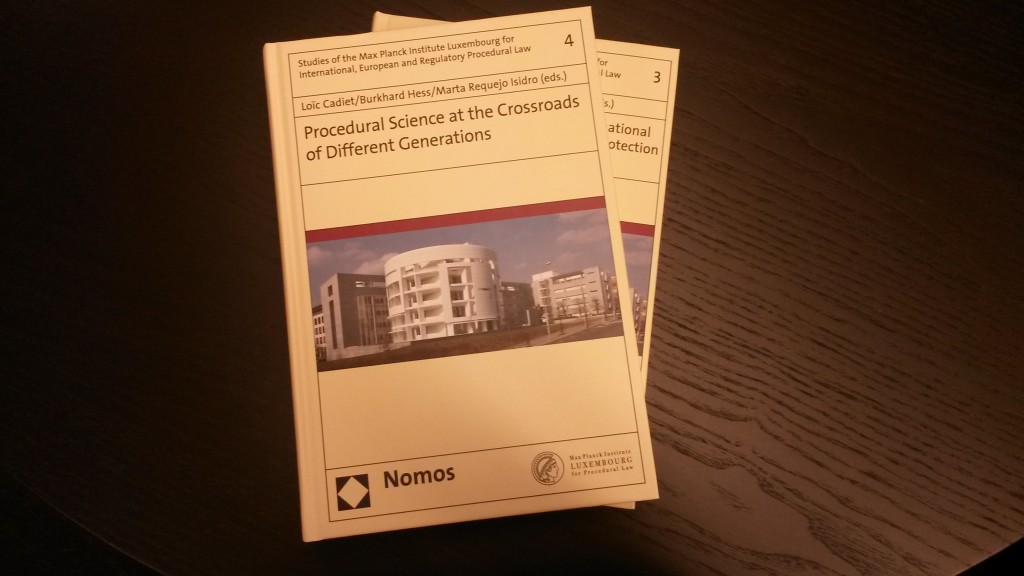The following announcement has been kindly provided by Béligh Elbalti, Assistant Professor, Graduate School of Law, Kyoto University.
Since 2008, the Research Unit on International Private Relations, Commerce, Arbitration and Migrations of the Faculty of Legal, Political and Social Sciences of Tunis (Carthage University) has been organizing the “journées Mohamed Charfi de droit international privé” colloquium which address various Private International Law issues. These colloquiums are organized on the memory of the late Dr. Mohamed Charfi, an eminent and leading Tunisian scholar specialized in the field of family law, human rights and private international law.
On April 2016, the Research Unit will organize its fourth journées Mohamed Charfi de droit international privé under the theme of international contracts and private international law. The colloquium will be held at the Faculty of Legal, Political and Social Sciences of Tunis on the 13 and 14 April 2016. Eminent and distinguished professors, as well as leading Tunisian law professors and private international law specialists will take part in this event.
The program will be as follow:
First Day : 13 avril 2016 (Wednesday) :
Les tendances générales dans le droit du contrat international
Morning Sesseion
8h30 – 9h15: Welcome Speech
9h15 – 9h30: Ali MEZGHANI (Professeur, Faculté de Droit des sciences juridiques, politiques et sociales de Tunis)
Présentation générale du colloque : « À propos du contrat international »
9h30 – 10h : Pierre MAYER (Professeur émérite, École de Droit de la Sorbonne)
Rapport introductif : « L’internationalité du contrat »
10h -10h30 : Jean-Michel JACQUET (Professeur, Institut des Hautes études internationales et du développement de Genève)
« Sanctions économiques internationales et contrats internationaux »
10h30-11h : Coffee Break
11h – 11h30 : Souhayma BEN ACHOUR (Professeur, Faculté de Droit et des sciences politiques de Tunis)
« L’essor de l’autonomie de la volonté en Droit international privé tunisien »
11h30 – 12h : Salma TRIKI (Maitre-assistante, Institut supérieur des études juridiques et politiques de Kairouan)
« La hiérarchie des normes dans le droit du commerce international »
12h – 12h30 : Debate
Afternoon Session
15h – 15h30 : Imed BÉJAOUI (Maitre-assistant, École supérieure de commerce de Sfax)
« La pérennité du contrat international entre pacta sunt servanda et rebus sic stantibus : réflexions au regard du pouvoir interprétatif de l’arbitre»
15h30 – 16h : Donia ALLANI (Assistante, Faculté des sciences juridiques, politiques et sociales de Tunis)
« La loi applicable au contrat d’après l’article 62 du Code tunisien de droit international privé »
16h-16h30 : Coffee Break
16h30h-17h: Thouraya AHMADI (Assistante, Faculté des sciences juridiques, politiques et sociales de Tunis)
« Les lois de police étrangères et le contrat international »
17h-17h30 : Debate
Second Day : 14 avril 2016 (Thursday) :
De quelques solutions particulières dans le droit du contrat international
Morning Session
9h – 9h30 : Lotfi CHEDLY (Professeur, Doyen de la Faculté de Droit des sciences juridiques, politiques et sociales de Tunis)
« La protection du consommateur en Droit international privé tunisien »
9h30 – 10h : Fatma BOURAOUI (Maitre assistante, Faculté de Droit des sciences juridiques, politiques et sociales de Tunis)
« Les contrats de transmission des créances en droit international privé »
10h – 10h30 : Rym BEN KHELIFA (Maitre-assistante, Faculté de Droit et des sciences politiques de Tunis)
« L’impact des traités relatifs à la protection des investissements sur les contrats conclus entre États-hôtes et investisseurs étrangers »
10h30 – 11h : Coffee Break
11h – 11h30: Jallel BACCAR (Maitre-assistant, École supérieure de commerce de Sfax)
« Le crédit documentaire international »
11h30 – 12h : Inès YOUSSEF (Maitre-assistante, Faculté des sciences juridiques, économiques et de gestion de Jendouba)
« Le payement d’un contrat international par crédit documentaire »
12h – 12h30: Debate
12h30 : End of the Colloquium
All presentations are in French. Participation to this event is free of charge and no prior reservation is required.
